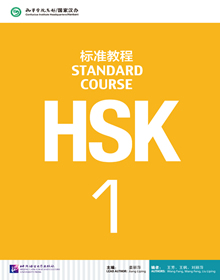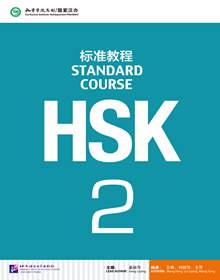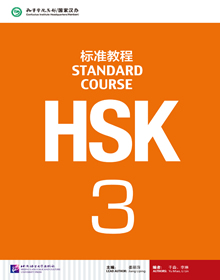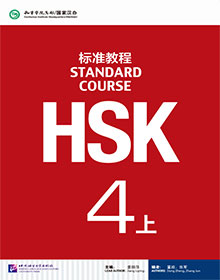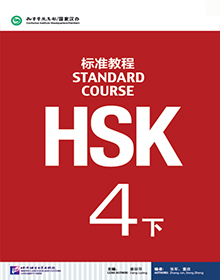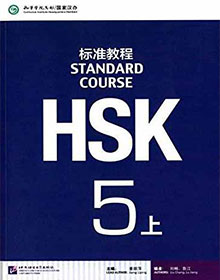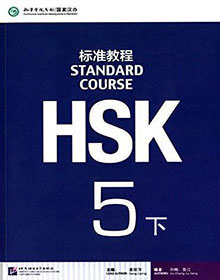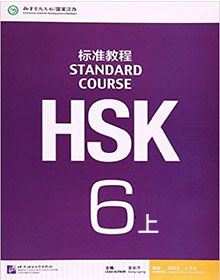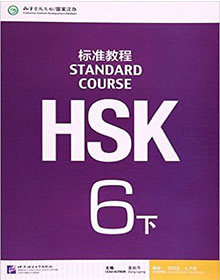| Lesson |
Topics |
Grammar |
Pronunciation |
Writing |
1 |
Hello |
|
1. Initials and Finals of Chinese Pinyin
2. Tones (Four Tones)
3. Chinese syllables
4. Tone Sandhi: 3rd tone+3rd tone |
1. Strokes of Chinese Characters
2. Single-Component Characters: |
2 |
Thank you |
|
1.Initials and Finals of Chinese Pinyin
2.The Neutral Tone
3. Rules of PINYIN: Tone Marking and Abbreviation |
1. Strokes of Chinese Characters
2. Single-Component Characters: |
3 |
What’s your name |
1. The Interrogative Pronoun “什么”
2.
The “是”Sentence
3. Interrogative Sentences |
1.Differentiation: pronunciation of the initials j, q, x and z, c ,s
2.
Differentiation: pronunciation of the finals I, u, ü
3.
Tone Sandhi of “不(bu)”
4. Rules of Pinyin (2): ü or finals led by ü with j, q, x |
1.Strokes of Chinese Characters(3);
2.Single-Component Characters
3.Stroke Order (1): horizontal preceding vertical and left-falling preceding right-falling
|
4 |
She is my Chinese teacher |
1. The Interrogative Pronouns "谁" and "哪"
2. The Structural Particle "的"
3. The Interrogative Particle"呢"(1)" |
1.Differentiation: pronunciation of the initials zh, ch, sh, r
2.Differentiation: pronunciation of the alveolar nasal n and the velar nasal ng
3.Tone Sandhi of "一(yi)"
4.Rules of Pinyin (3): use of y and w
|
1. Strokes of Chinese Characters(4);
2. Single-Component Characters:七、儿、几、九
3. Stroke Order (2):top preceding bottom and left preceding right
|
5 |
Her daughter is 20 years old this year |
1.The Interrogative Pronoun "几"
2.Numbers below 100
3."了" Indicating a Change
4.The Interrogative Phrase "多+大"
|
1.The Retroflex Final
2.Differentiation: pronunciation of finals beginning with i , u, ü
3.Difference between Aspirated and Unaspirated Initials
4.Rules of Pinyin(4): syllable-dividing mark
|
1.Strokes of Chinese Characters(5);
2.Single-Component Characters:
3.Stroke Order (3):outside preceding inside and middle preceding sides
|
6 |
I can speak Chinese |
1.The Modal Verb "会"(1)
2.Sentences with an Adjectival Predicate
3.The Interrogative Pronoun "怎么"(1) |
Tone Collocation in Disyllabic Words(1):1 tone+1 +2 +3 4+ tone |
1.Strokes of Chinese Characters(6)
2.Single-Component Characters:
3.Structure of Chinese Characters(1):single-component and compound |
7 |
What’s the date today |
1.Expression of a Date(1)"month, date , day of the week
2.Sentences with a Nominal Predicate
3.Sentences with a Serial Verb Construction(1):去+Place+ to do |
Tone Collocation in Disyllabic Words(2):2 +tone+1 +2 +3 +4 tone |
1.Strokes of Chinese Characters
2.Single-Component Characters(2):left-right and left-middle-right
3.Chinese Radicals
|
8 |
I’d like some tea |
1.The Modal Verb "想"
2.The Interrogative Pronoun "多少"
3.The Measure Words "个"and "口"
4.Expression of the Amount of Money |
Tone Collocation in Disyllabic Words(3): 3 +tone+1 +2 +3 +4 tone |
1.Single-Component Characters
2.Strokes of Chinese Characters(3):top-bottom and top-middle-bottom
3.Chinese Radicals |
9 |
Where does your son work |
1.The Verb "在"
2.The Interrogative Pronoun "哪儿"
3.The Preposition "在"
4.The Interrogative Particle "呢"(2) |
Tone Collocation in Disyllabic Words(4): 4 +tone+1 +2 +3 +4 tone |
1.Single-Component Characters
2.Strokes of Chinese Characters(4):half-enclosure
3.Chinese Radicals |
10 |
Can I sit here |
1.The "有" Sentence: indicating existence
2.The Conjunction "和"
3.The Modal Verb "能"
4.Imperative Sentences with "请" |
1.Pronunciation of Neutral-Tone Syllables
2.Pronunciation of Reduplicated Syllables
3.Pronunciation of Words with the Suffix "-们", "-子"or "-头" |
1.Single-Component Characters
2.Strokes of Chinese Characters(5):enclosure
3.Chinese Radicals |
11 |
What’s the time now |
1.Expression of time
2.Time Word Used as an Adverbial
3.The Noun |
Function of Neutral-Tone Syllables |
1.Single-Component Characters
2.Chinese Radicals |
12 |
What will the weather be like tomorrow |
1.The interrogative pronoun
2.Sentences with a subject-predicate Phrase as the Predicate
3.The Adverb
4.The Modal Verb |
Tone Collocation in Trisyllabic Words(1): words starting with a first-tone syllable
|
1.Single-Component Characters
2.Chinese Radicals
|
13 |
He is learning to cook Chinese food |
1.The interrogative
2.Used to Indicate an Action in Progress
3.Expression of telephone Numbers
4.The Modal Particle |
Tone Collocation in Trisyllabic Words(2): words starting with a first-tone syllable |
1.Single-Component Characters
2.Chinese Radicals |
14 |
She has bought quite a few clothes |
1.Indicating Occurrence or Completion
2.The Noun
3.The Modal Particle
4.The Adverb |
Tone Collocation in Trisyllabic Words(3): words starting with a first-tone syllable |
1.Single-Component Characters
2.Chinese Radicals |
15 |
I came here by air |
1.The Structure used to emphasize time , place or manner
2.Expression of a Date(2):year, month, date, day of the week |
Tone Collocation in Trisyllabic Words(4): words starting with a first-tone syllable |
1.Single-Component Characters
2.Chinese Radicals |



